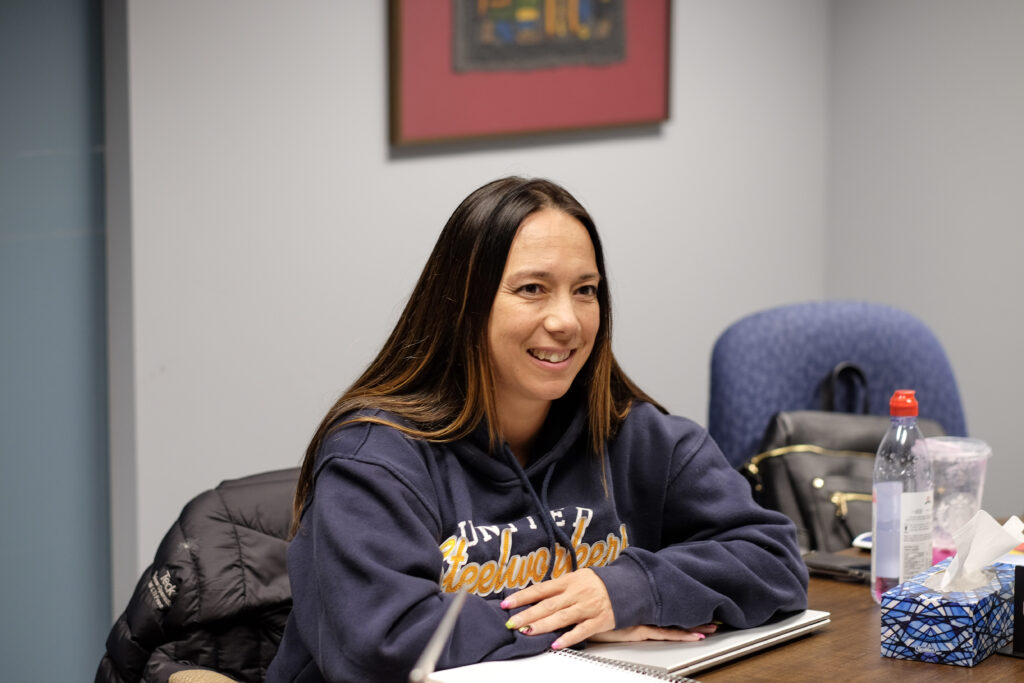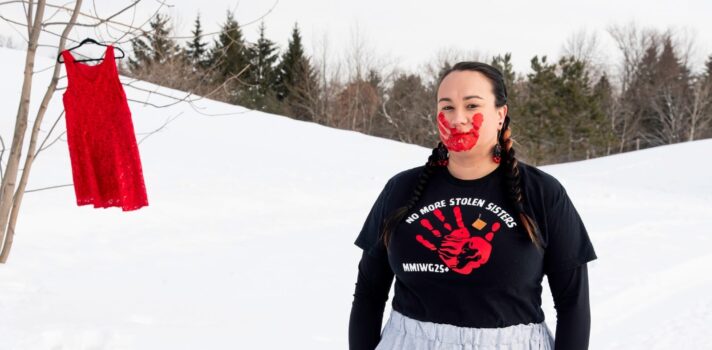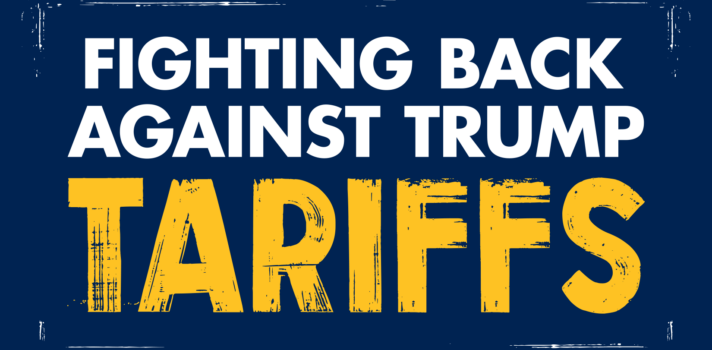Julia McKay is adding to her hat collection. An activist with USW Local 9346 at Teck in British Columbia, McKay is also one of the USW’s first Indigenous Engagement Co-ordinators, facilitating the Unionism on Turtle Island course for Steelworkers in Western Canada, exploring ways to support and engage Indigenous members and supporting locals in their work.
In addition to these roles, McKay, who traces her Indigenous ancestry to the Tsim Shian First Nation, based on the B.C. Coast, has been serving since 2022 as the USW labour representative on the United Nations Declaration Sub-committee of the Code Review Committee, which is updating the Health, Safety and Reclamation Code for Mines in B.C.
In addition to bringing her health and safety and Indigenous experience to this work, McKay is learning a lot.
After many years of advocacy and pressure, including from the USW, the federal Parliament passed a law in 2021 to implement the United Nations Declaration on the Rights of Indigenous Peoples (UNDRIP) in Canada.
B.C. went first, though, passing a law adopting UNDRIP at the provincial level in 2019 – the only province to date to do so.
The B.C. Declaration Act “aims to create a path forward that respects the human rights of Indigenous Peoples while introducing better transparency and predictability in the work we do together.”
McKay’s sub-committee, a group of 10 people from the mining sector – most with Indigenous ancestry – meets every month or second month in Vancouver, in-person and virtually.
“We are filtering the code through the UNDRIP lens – where we can enhance and add anything that has to do with UNDRIP,” says McKay.
The code has few references to First Nations and is out-of-date in various areas, she notes. For example, the code’s language around exposures to particulate matter is from 1994.
The sub-committee also recommended updating the code’s requirements for mine managers in responding to “reportable incidents,” which are cases of injury or the potential for injury.
The updated code lays out that a mine manager “must engage with First Nations that may be affected by reportable incidents to determine which reportable incidents must be reported to the First Nations.”
The sub-committee members include mechanics and people who are active in their bands and on their councils and working at the mines.
“Even with people from the ministry – even though this is their job – you sometimes have to tell them how things actually work on-site. That’s a big reason why labour absolutely needs to be on these committees,” says McKay.
McKay joined the committee on recommendations from USW District 3 Director Scott Lunny and Staff Representative Dean Lott.
“I feel that anytime we’re learning, expanding our knowledge, it’s good. I come out of mining. It just makes me better at my job. My new position with the USW is focused on Indigenous engagement, and this is definitely hyper-focused on that,” says McKay.
“It’s taken too long to get to this point. Now that the work is actually happening, that’s good.”
Share on Facebook




